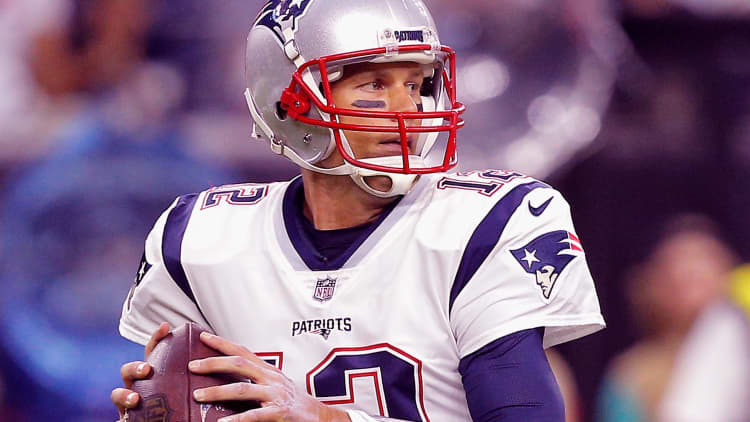With a reported $8 million-per-year salary and a star position as a sports commentator on ESPN's show "First Take," 52-year-old television personality Stephen A. Smith reveals the dogmatic work ethic and uncompromising view of authority that has led to his success.
"I wake up every day understanding that I don't represent just myself. I represent my mom. I represent my family. I represent ESPN. I walk out the door every day understanding that reality and operating accordingly," Smith told GQ in a feature published Wednesday.
Smith, who was born in the Bronx, New York and raised in nearby Queens, worked his way up in sports journalism. He started his career covering high school sports for the New York Daily News and today he's considered the "biggest name at ESPN," according to GQ.
It took hard work ("If I'm asleep, somebody else is awake. If I'm off, somebody else is working," he said) and following the rules.
TWEET: Why I feel like I've never arrived.
While Smith won't do anything that "will impugn my integrity as a man," he told GQ, and in his position he has a lot of clout at his network, "[as] a subordinate, I'm very, very, very big on authority," he said.
In his view, every workplace has rules and people "have to capitulate to them if you want to work. And if you don't want to capitulate to those rules, then go find another job."
The fairness or equity of those rules are of little matter. "We got to work and be big boys and big girls.... Those who make the golden rules are those who have the gold," he said.
It's also the boss "who determines whether your work is good enough," according to Smith.
"You do not get to have your hand out for somebody else's money and define what the standards of success are. If anybody could go out there and define their own success, what kind of world we living in? You'll have a whole bunch of people who are mediocre that have jobs, and spending [the company's] money. That's not how the real world works."
Part of Smith's pragmatic perspective has been shaped by his life experience as a black man, he said.
"I'm sorry if it makes you uncomfortable, but I'm a black man. I always feel replaceable. One of the many definitions of stupidity is a black man who feels he is not expendable," he told GQ. "There's not a black man alive that I know that feels he's untouchable, and that life doesn't go on without him. I've never met that man, ever. It's just the world we live in. No matter what I've done, no matter how much I've produced, there has always, always, always been folks who are waiting for me to make a mistake, so they can justify not marrying me. And I'm fine with that," Smith told GQ.
See also:
Alibaba billionaire Jack Ma: Almost 'everybody can be successful if you really try hard'
Bill and Melinda Gates: No matter where you're born, 'life will be harder if you are born a girl'
How turning CrossFit into a religion made its atheist founder Greg Glassman rich

Like this story? Subscribe to CNBC Make It on YouTube!


